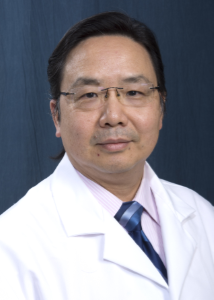- Home
- Center for Cancer Research
- Researchers
- William Tse, MD, MBA
William Tse, MD, MBA

Chief, Division of Hematology/Oncology
MetroHealth Professorship in Research
Professor of Medicine in the Department of Medicine at CWRU
Deputy Director, MetroHealth System Cancer CenterCase Comprehensive Cancer Center Member
Co-director, National Center For Regenerative Medicine, Case Western University School of Medicine
Contact
MetroHealth Medical Center
Rammelkamp Center for Research
2500 MetroHealth Drive, Cleveland, OH 44109
Call: 216-778-8968 Email: [email protected] | Website: Case Comprehensive Cancer Center Profile
Summary
Dr. William Tse received his medical degree from Sun Yet-Sen University School of Medicine in China. Upon graduation, Dr. Tse received surgical training focusing on Thoracic Oncology. He then pursued his research fellowship at the Princess Margaret Hospital/Ontario Cancer Institute and The Hospital for Sick Children at the University of Toronto, where he produced a seminal work in characterizing one of the important chromosomal translocations, t (1;11) (q21; q23), in acute myeloid leukemia (AML). This was one of the earliest molecular cloning efforts to characterize the MLL fusion gene, AF1q, in AML. Over the years, he has been leading a pioneering effort in developing the clinical translational research program from discovering the AF1q gene to clinical targeting treatment in cancers.
Dr. Tse completed his Internal Medicine residency at the North Shore-Long Island Jewish Medical Center, Albert Einstein College of Medicine. Then, he completed medical oncology and stem cell transplantation fellowship at Fred Hutchinson Cancer Research Center, the University of Washington School of Medicine. Prior to holding his current position, he was the Marion F. Beard Endowed Chair and Chief, Division of Blood and Marrow Transplantation at James Graham Brown Cancer Center, University of Louisville (UofL)School of Medicine.
Dr. Tse’s research interests are focused on three major areas: 1) Early phase cancer therapeutics, cellular and immunotherapies for blood cancers and other non-malignant disorders; 2) Laboratory-based translational researches in normal and cancer stem cell signaling profiles and pre-clinical animal models for therapeutics.
